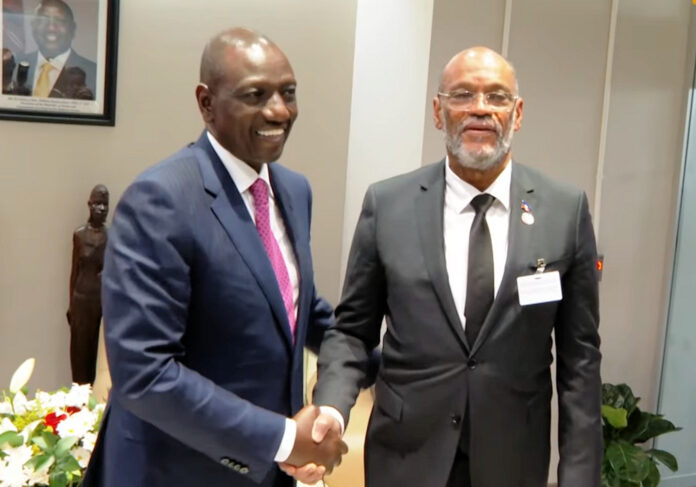
Just as it is opposing and trampling the International Court of Justice’s ruling against Israel’s genocidal campaign in Gaza, Washington is running roughshod over the Kenyan High Court’s Jan. 26 ruling that the East African nation’s police force cannot be deployed to Haiti under Kenya’s Constitution.
The Court explained that, to be legal, Haiti would have to request a “bilateral” arrangement for deployment with Kenya, an apparent loophole that Washington and Kenya’s President William Ruto leapt for.
At an Italian-Africa summit in Rome on Jan. 30, Ruto declared that the mission would go ahead as soon as “all the paperwork is done between Kenya and Haiti on the bilateral route that has been suggested by the court.”
But Dr. Ekuru Aukot, the opposition lawyer who brought the successful suit against the Kenyan police deployment, explained on X: “Only a legitimately elected president who then forms a legitimate government pursuant to the Haiti constitution can make such a request. An imposed [de facto] PM, Ariel Henry, cannot make such a request. Besides, there must be a reciprocal agreement between Kenya and Haiti. That agreement has to be sanctioned by the Haitian Parliament. Haiti doesn’t have a parliament as we speak.” Many Haitian and Kenyan legal experts and analysts seconded Aukot’s assessment.
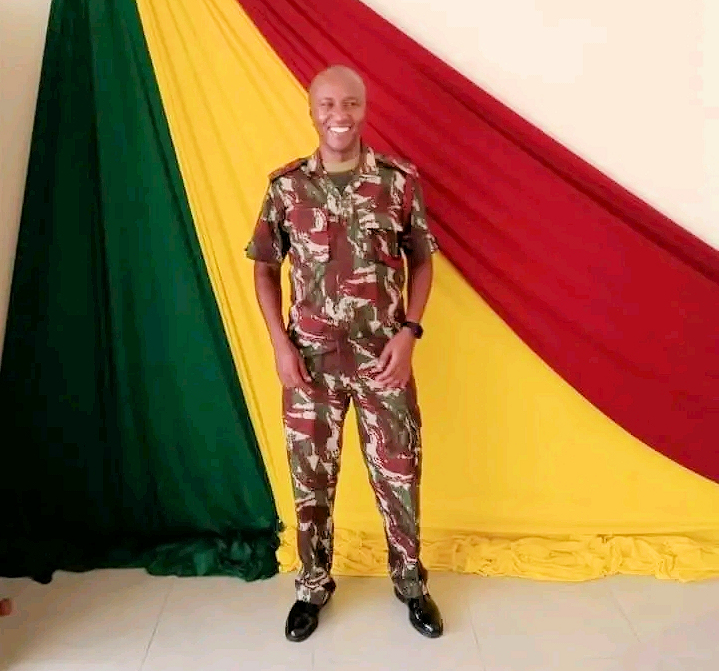
However, Washington, Henry, and Ruto were undeterred. On Feb. 9, Kenya sent a 10-member delegation to Washington to meet with U.S. officials and Haiti’s Justice Minister Emmelie M. Prophète accompanied by Haitian National Police (PNH) Chief Frantz Elbé and three others from the police brass.
(The leader of Kenya’s delegation, Inspector Walter Nyankieya Nyamato, 39, personal assistant to Deputy Inspector General of Kenya’s Police, Noor Gabow, was found face-down dead on the bed of his Washington hotel room on the morning of Feb. 14. His brother traveled to Washington from Minnesota, but U.S. authorities refused to give him any information about the highly suspicious death, the cause of which has still not been announced.)
To create the impression of momentum and fait accompli, several other announcements were made last week. On Feb. 22, Canada announced that it would contribute CAN$80.5 million (US$59.4 million) to the nominally Kenyan-led Multinational Security Support mission (MSS) to Haiti. (The U.S. has pledged $200 million, while the overall price tag will be about $620 million.) Then, on Feb. 26, U.S. Ambassador to the UN Linda Thomas-Greenfield announced at the CARICOM Summit in Guyana that Benin had committed 2,000 troops to the MSS.
Finally, on Feb. 27, Haiti’s Henry left the Summit for Nairobi, where he will go through the motions of signing a bilateral security deal with Kenya, no matter how meaningless the document, given his illegitimacy and unpopularity in Haiti.
Meanwhile, a draft indictment by Investigating Judge Walther Wesser Voltaire’s investigation into President Jovenel Moïse’s Jul. 7, 2021 assassination was leaked last week, but it has dramatically backfired on Henry because of its patently absurd methods, content, and conclusions.
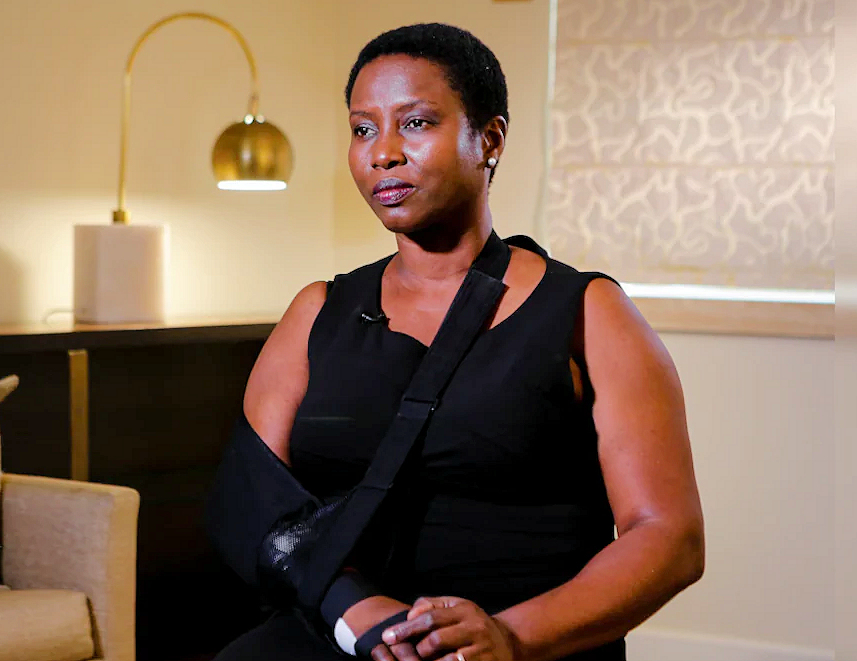
Instead of identifying the intellectual authors and financial backers of the murder conspiracy and pursuing more facts and evidence like that presented in an extensive 2021 police report, Voltaire allegedly (the document is not signed or released by the Government Commissaire as required by law) indicts 51 people, the most important of them on the basis of highly questionable interviews with central conspirators, like Félix Joseph Badio, who ordered Colombian gunmen to shoot Moïse.
Controversially named in the document are Jovenel’s widow, Martine Moïse, who was gravely wounded in the attack; Claude Joseph, Jovenel’s interim Prime Minister who has been at the forefront of the movement demanding justice for the crime; former Police Chief Léon Charles, who, in the wake of the leak, resigned from his post as Haiti’s Ambassador to the Organization of American States (OAS), and Jeantel Joseph, head of the Brigade for Surveillance of Protected Spaces (BSAP), which has become a militia dedicated to Henry’s removal and revolutionary change in Haiti.
Not named, despite having given evasive answers to evidence suggesting his collusion in the plot, is Ariel Henry himself, with whom Voltaire allegedly reviewed the report, according to some radio reports.
Martine Moïse’s lawyer wrote to the court questioning the document’s authenticity, lacking signature or seal. Furthermore, “the mandate of the investigating judge had already expired before the dissemination on online platforms of this alleged order, devoid of any authentication,” wrote Emmanuel Jeanty. “This temporal inconsistency justifies reasonable doubts about the judicial process’ integrity and raises concerns about the validity of these events.”
Claude Joseph called the document “shaky,” “far-fetched,” and “political.” Léon Charles called the purported indictment “absolutely unjust and slanderous” as he resigned so he can “vigorously combat, by all legal means, the fanciful accusations brought against me.”
A shadow also hangs over Henry following a Feb. 18 house explosion which severely burned Bishop Pierre André Dumas, who is now being treated in a Miami hospital. Dessalines Children leader Moïse Jean-Charles accused the government of being behind the blast because Dumas was going to issue a critical statement against Henry, Jean-Charles said.
Meanwhile, the Haiti-Truth website published an authoritative and damning exposé on blatant corruption between the U.S. Embassy’s Bureau of International Narcotics and Law Enforcement (INL) and members of the PNH leadership.
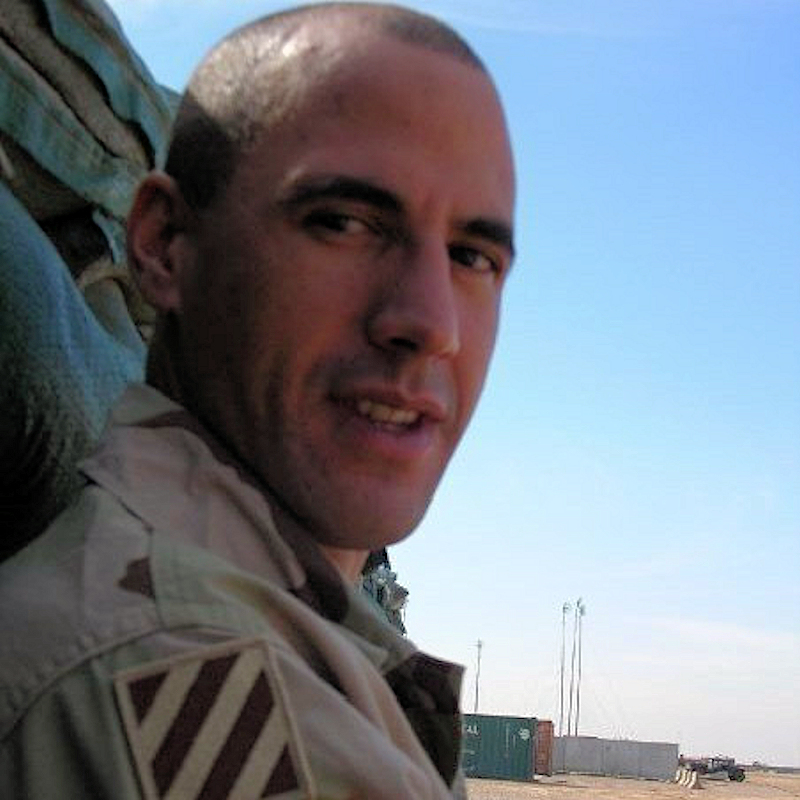
“The INL office issued a letter to a Haitian individual suspected of illegal weapons/ammunition smuggling, [constituting] a contract for $4,000,000 to supply teargas and protective vests for the PNH,” Haiti-Truth reported. “Rumors suggest something like $2,000,000 of this was skimmed, a fact that can only be proved, or disproved, by examination of the prices charged, by INL friends, and the real economy.
“The INL letter went to an individual/company known to pay off PNH personnel,” the report continued. “We know that, [and] the INL must know that – as part of their job – but they still supported corruption.”
An order was made to resupply the PNH which was almost out of ammunition in August 2023, and the “supplier completed their end of the requirement, but the PNH derailed the paperwork. All of the required material was sitting – packaged – on the docks – for immediate shipment to Haiti. Some pallets of ammunition would have gone by air.” But “everything died… along with some PNH officers” and “no reason was given for the failure to complete the transaction five months ago.”
“INL’s Philippe Arthur was going to partner with PNH Logistics Director Marjory St. Jean, and others, to take the contract, inflate prices, and split the profits.”
The website concludes that PNH brass is selling ammunition to Haiti’s criminal gangs and that the INL either does or should know about it.
This report reveals the hypocrisy of the U.S. State Department’s campaign to import thousands of foreign troops into Haiti at the cost of hundreds of millions of dollars and terrible bloodshed, while it undermines the functioning and financing of the PNH itself.
This corruption and disregard of national and international law has even pushed some sectors of Haiti’s bourgeoisie to panic. On Feb. 25, a new coalition called Members of the Haitian Private Sector Revolt (MESPHAR) issued a statement that it is “outraged by the complacent, even complicit, attitude of other members of the Haitian private sector [ADIH, CCIO/CCIH, AMCHAM, CCIHC, CFHCI, APB, TOURIST ASSOCIATION, ORGANIZED CIVIL SOCIETY] towards Ariel Henry’s government, which does nothing to curb the massacre of the innocent population” and called on Henry to resign by Feb. 29 or “all industries, business houses, and private banks will have to close their doors from Mar. 1, 2024, until the departure of this de facto government.” The statement is signed by Romeo Halloun, a supporter of the 1991-1994 coup d’état against President Jean-Bertrand Aristide, indicating how widespread the hatred of Henry’s regime has become.
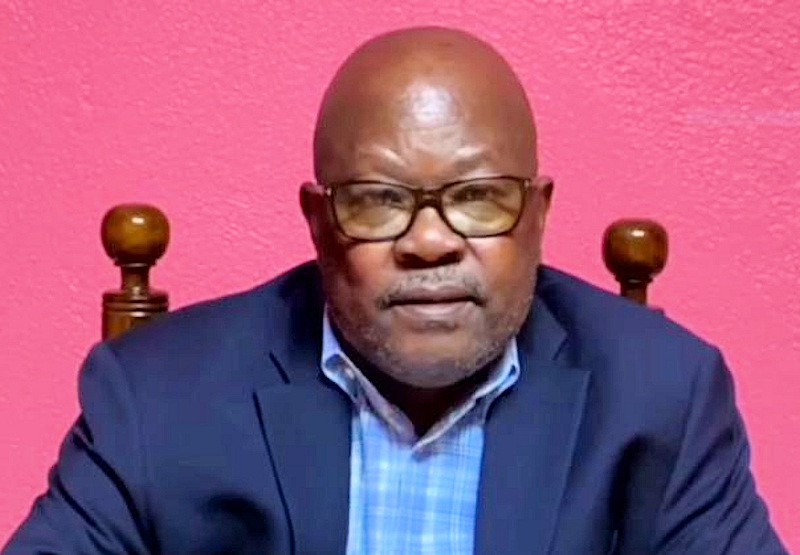
But in the end, most of Haiti sees Henry as simply Washington’s puppet. On Feb. 21, Mario Joseph, the lead lawyer of the International Lawyers’ Office (BAI) issued an open letter which took U.S. Chargé d’Affaires Eric William Stromayer to task.
“Mr. Stromayer, the United States drives Ariel Henry like cattle being led to the slaughter to make him ask the UN to send a disguised Multinational Force, without showing itself…, while your country knows very well the 1987 Constitution does not even give a Prime Minister the legal authority to request the deployment of a ‘peace mission’ since Ariel Henry is illegal, and has no quality nor legitimacy,” Joseph wrote. “The BAI… denounces and condemns with all its might the hegemonic behavior of your country, the United States, in interfering in Haiti’s internal affairs since independence until today and violating the Principles of International Law, particularly the Vienna Conventions that establish diplomatic relations between States and delineate the behavior of an ambassador in a host country.”











[…] Flouting High Court and Haitian Outrage, U.S. Storms Forward with Kenyan-Led Haiti Intervention Haiti Liberte […]
[…] the police deployment as unconstitutional, but the U.S. and Kenyan President William Ruto are flouting the court’s ruling and trying to deploy the mission […]
[…] the police deployment as unconstitutional, but the U.S. and Kenyan President William Ruto are flouting the court’s ruling and trying to deploy the mission […]
[…] palettes dans le hangar d’AmeriJet à Miami, toutes en raison de la pénurie de munitions. corruption et incompétence tant dans la bureaucratie de la PNH que dans celle du Bureau des stupéfiants et de […]